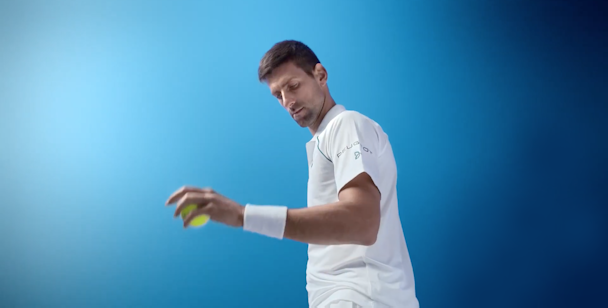Can a sporting superstar transform your brand? They’re only human, after all
It’s not hard to see why elite athletes are so in demand by brands, but in a world where scrutiny is higher than ever before, how can brands and sports stars strike the perfect partnership? We take a look as part of The Drum’s Sports Marketing Deep Dive.

Novak Djokovic took a swing at his haters in Peugeot’s 2021 ‘Silence The Critics’ spot / Peugeot
Earlier this year, Novack Djokovic’s controversial anti-vax stance reopened the age-old debate around when a brand should support its ambassador and when it should cut ties to protect itself. So, what makes a good sports endorsement and how can brands maintain a healthy relationship with their athlete?
Picking the right athlete to back is the first step to ensuring a healthy sports endorsement, according to Alex Giacon, managing director of football news site 90mins, who says that personality matters more than achievement.
“You can have players that have achieved the top tier of trophies but if they don’t have that authenticity, that personality when they are communicating to their own audience, it doesn’t really work.” He offers up footballers Peter Crouch and Patrice Evra as passionate personalities who do good brand work.
For Amar Singh, the senior vice-president of content and communications at MTKG, a brand and athlete have to have shared values for a partnership to work. “There needs to be something that connects other than just an athlete being so hot right now you need to slap your brand on them.”
Singh says sports is in a “purpose-driven era” and athletes want to be communicating their own personal views. “Increasingly today, athletes understand what they stand for, what they believe in and what brands fit in with their values as well.”
Along with aligning brand values, marketers should be doing their due diligence and baking in a code of conduct to contracts to protect themselves. Singh says this need not go as far as looking through every tweet or Myspace post, but says reasonable checks should be made.
Referencing his time working for a big alcohol brand, he recalls having to be thorough that a potential ambassador was clean from any drink-related controversies. “I’ve had difficult conversations at times where we’ve had deals agreed in principle, deals pretty much signed off, and then they’ve fallen foul of our marketing code, and we’ve had to revoke that deal.”
So what happens when it goes wrong?
Sports history is littered with examples of scandals and controversies, from Djokovic’s recent refusal to get the Covid vaccine to West Ham player Kurt Zoumer kicking a cat to Tiger Woods’s affairs and reckless driving.
When a scandal breaks, brands often make a brash decision to revoke deals and condemn athletes before the full picture has come to light. Giacon warns this approach can be troublesome and lead to “adverse reactions” from fans and the media for not supporting the athlete. “It’s a very delicate balance and depends on the situation, but ultimately brands should look at what stance the athlete has taken and, if it still matches up with the brand values, take a decision from that.”
Emma Franklin-Wright, senior associate director at Hill + Knowlton, says an athlete should be judged on their actions after an incident, claiming that a “genuine apology goes a long way in reassuring brand partners, fans, clubs and governing bodies”. According to Franklin-Wright, there is a difference between people who make mistakes then apologize “wholeheartedly” and take the opportunity to educate themselves, and athletes who use the incident to battle with their partner brands and decide not to back down.
Franklin-Wright points out that a lot of athletes are living in bubbles, surrounded by people who often don’t challenge them. “It can be a really big moment when they are held accountable for something they’ve done wrong,” she says. They might need the support of a brand to make the right call.
The flip side is what brands can do when their ambassador is in the public eye making positive public statements. Franklin-Wright references Blackpool player Jack Daniels who publicly came out in May – currently the only openly gay professional English footballer. In his case, his club and brand sponsors worked hand in hand to help Daniels make that journey and tell his story to the press.
“There is always a great role for brands in going in and fighting on behalf of your athletes,” she says, adding that brands can take some of the heat out of those comments. “If all of the angry people start directing their hate at the brand, then great. That takes the heat off of the 19-year-old kid whose Instagram is full of hate.”
She concludes: “There is a role for brands to not only hold people accountable but also, when they do things right, to get in their athlete’s corner when they make brave and good choices as well.”
Check out The Drum’s latest Deep Dive, The New Sports Marketing Playbook, and learn the tactics employed by the world’s biggest sports organizations and their star athletes to stay top of their game.

